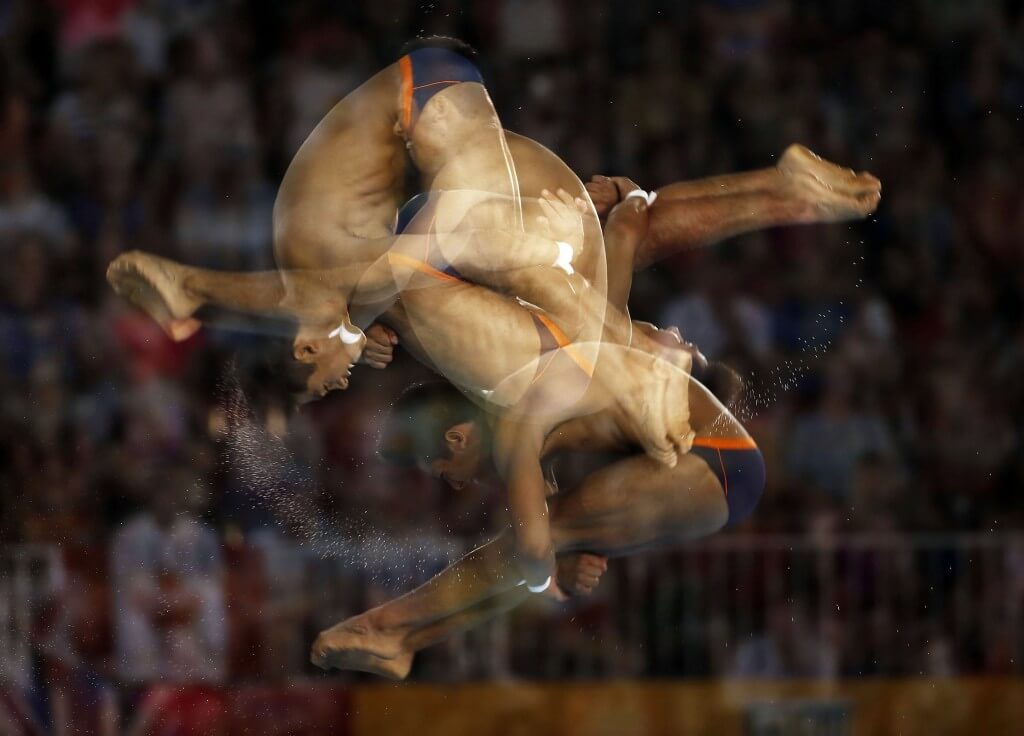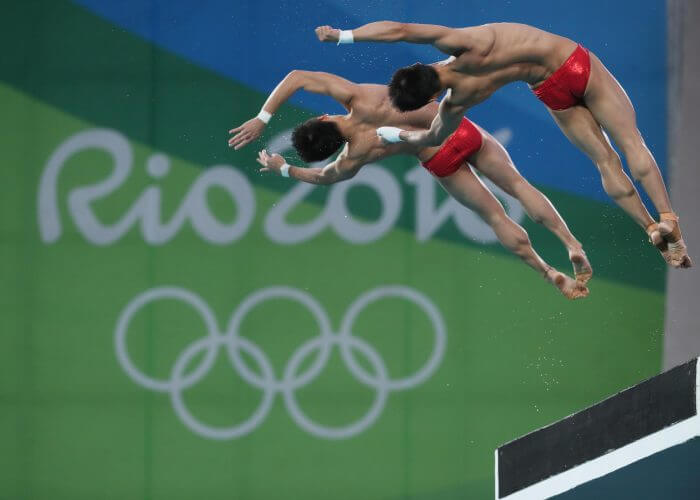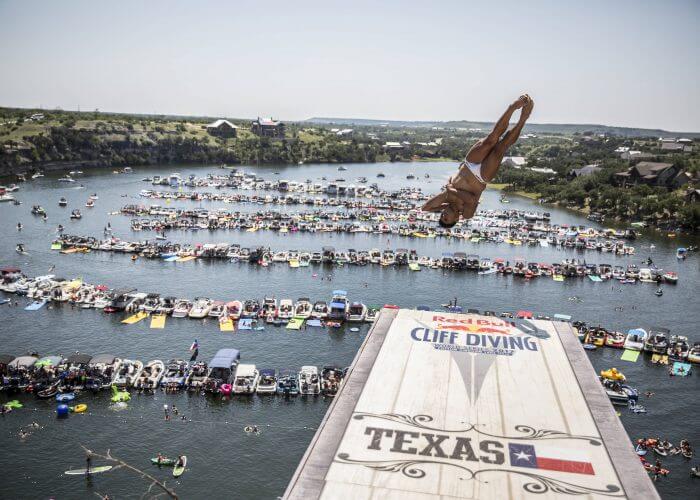Debunked: Five Myths About Divers

By Erin Keaveny, Swimming World Contributor.
There are plenty of stereotypes and in any sport. But as a sport that many people don’t understand, or can’t relate to, diving has a lot of them.
Here are five myths about diving, debunked.
1. Divers aren’t afraid of heights.
Many divers are afraid of heights, just like everyone else. The difference is that divers chose to face that fear every day.
There are also divers who are not afraid of the height itself, but that doesn’t mean they’re not scared trying new dives from higher boards and platforms.
Olympic gold medalist David Boudia has been open about his fear. He told Forbes in 2016, “Not only do I have to wear my underwear in front of millions of people, I now have to jump off the equivalent of a three story building while in them,” and that any sane person would be scared.
2. They’re all going to the Olympics.

Photo Courtesy: David E. Klutho-USA TODAY Sports
While there are not that many divers in comparison to basketball players or another more popular sport, there are way more divers that the those who get to compete at the Olympics.
There are only eight Olympic diving events: men’s and women’s individual and synchronized platform and springboard.
In addition, each nation is limited to bringing 16 divers. No country can have more than two divers entered in an individual event, and one pair in a synchronized event. Not to mention, most countries do not qualify to enter divers in every event, limiting the number of athletes even more.
3. Splash size is the only divers are scored on.
Yes, the size of a divers splash can be an indicator of how successful the dive’s entry was. But, there are many more things a diver is judged on.
A very good dive must also be close to the board, but not too close. The diver must have also straight legs– unless the dive is in tuck– pointed toes, and be a good height above the board. In other words, to get a perfect score the dive must look graceful and effortless.
That does not even consider a dive’s degree of difficulty. In order for a diver to get the highest score possible, they need to compete their hardest dives well, because the raw score from the judges is multiplied by the degree of difficulty. This way, divers are rewarded for challenging dives.
4. Divers have a best trick.

Photo Courtesy: Romina Amato/Red Bull Content Pool
“What’s your best trick”? Divers get asked this question all the time. While most divers don’t expect anyone to know anything about their sport, it is still a silly question.
First, divers don’t do tricks, they do dives. While it’s not the end of the world to mix this up, it does make diving seem more like fun and games than a sport.
Second, divers perform many dives that fall into 6 different categories. It is almost impossible to name one dive from very different categories as the best. Some dives have more flips than others, but some directions are harder than other directions as well. Add twists into the mix, and it’s just a big mess.
5. Divers don’t work hard.
There’s an idea out there that divers have it easy. They have a hot tub to take breaks in, they stand on the pool deck, do some flips and go home. This could not be farther from the truth though.
Here’s a secret: the best divers make diving look easy.
Diving takes an almost superhuman combination of strength, grace, and rhythm.
Beside from the sheer power it takes to compete big dives, it’s a mentally challenging sport. Human nature tells us to run from something like diving, and divers have to learn to face that, cope with it, and do it anyways.



